Alan Shorter was a free jazz trumpet and flugelhorn player, and the older brother of composer and saxophone player Wayne Shorter.
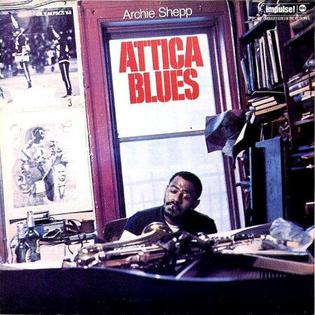
Attica Blues is an album by avant-garde jazz saxophonist Archie Shepp. Originally released in 1972 on the Impulse! label, the album title is a reference to the Attica Prison riots.

Poem for Malcolm is a jazz album by Archie Shepp. Recorded in Paris in August 1969 only two days after Yasmina, a Black Woman, it again features musicians from the Art Ensemble of Chicago. This time, the tone is resolutely set to avant garde and free jazz, with a political edge in the all but explicit tribute to Malcolm X. The Allmusic review by Scott Yanow states: "This LP from the English Affinity LP is a mixed bag. Best is 'Rain Forrest' on which tenor saxophonist Archie Shepp, in a collaboration with trombonist Grachan Moncur III, pianist Vince Benedetti, bassist Malachi Favors, and drummer Philly Joe Jones, perform some stirring free jazz; the interplay between Shepp and Jones is particularly exciting. On a four-and-a-half minute 'Oleo,' Shepp "battles" some bebop with fellow tenor Hank Mobley, but the other two tracks, a workout for the leader's erratic soprano on 'Mamarose,' and his emotional recitation on 'Poem for Malcolm,' are much less interesting, making this a less than essential release despite 'Rain Forrest'." It was originally issued on CD by Affinity mastered from a vinyl source and later reissued by Charly from the original master tapes.
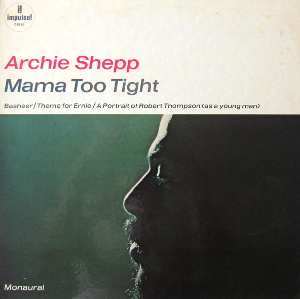
Mama Too Tight is an album by Archie Shepp released on Impulse! Records in 1967. The album contains tracks recorded by Shepp, Tommy Turrentine, Grachan Moncur III, Roswell Rudd, Howard Johnson, Perry Robinson, Charlie Haden and Beaver Harris in August 1966.
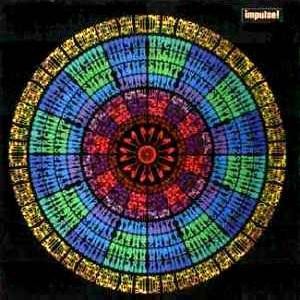
The Way Ahead is an album by Archie Shepp released on Impulse! Records in 1968. The album contains tracks recorded by Shepp, Jimmy Owens, Grachan Moncur III, Walter Davis Jr., Ron Carter, Roy Haynes and Beaver Harris in January 1968 with two additional tracks featuring Charles Davis, Dave Burrell and Walter Booker recorded in February 1969, and first released on Kwanza (1974), added to the CD release.

Things Have Got to Change is an album by avant-garde jazz saxophonist Archie Shepp released in 1971 on the Impulse! label. The album features a performance by Shepp with a large ensemble and vocal choir. The album "solidified the saxophonists reputation as a soulful, yet radical free jazz artist motivated by social commentary and cultural change".

Kwanza is an album by Archie Shepp released on Impulse! in 1974. The album contains tracks recorded from September 1968 to August 1969 by Shepp with four different ensembles.

There's a Trumpet in My Soul is an album by avant-garde jazz saxophonist Archie Shepp released in 1975 on the Arista Freedom label.
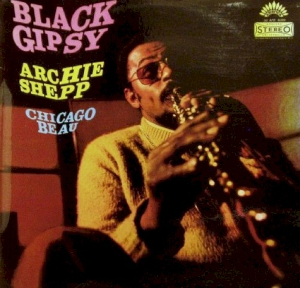
Black Gipsy is an album by jazz saxophonist Archie Shepp recorded in Europe in 1969 for the America label. The album was also issued by the Prestige label under the title Black Gypsy.

Archie Shepp & Philly Joe Jones is an album by jazz saxophonist Archie Shepp and drummer Philly Joe Jones recorded in Europe in 1969 for the America label. The album was also issued by the Fantasy label.

Live in Antibes is a live album by Archie Shepp and the Full Moon Ensemble recorded at the Juan les Pins Jazz Festival in Antibes, France, on July 18, 1970. It was originally released on the BYG Actuel label in two volumes and re-released as a double CD in 2002. The album features a performance by Shepp, Clifford Thornton, Alan Shorter, Joseph Dejean, Beb Guerin and Claude Delcloo.

Montreux One is a live album by jazz saxophonist Archie Shepp recorded at the Montreux Jazz Festival in 1975 and released on the Arista Freedom label.

Montreux Two is a live album by jazz saxophonist Archie Shepp recorded at the Montreux Jazz Festival in 1975 and released on the Arista Freedom label.
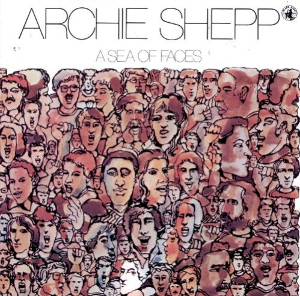
A Sea of Faces is an album by avant-garde jazz saxophonist Archie Shepp recorded in Milan, Italy on August 4 & 5, 1975 and released on the Italian Black Saint label. It features performances by Shepp with Charles Greenlee, Dave Burrell, Cameron Brown, Beaver Harris, Rafi Taha and Bunny Foy.

Archie Shepp – Bill Dixon Quartet is the debut album by saxophonist Archie Shepp and trumpeter Bill Dixon released on the Savoy label in 1962. The album features three performances by Shepp & Dixon with Don Moore and Paul Cohen and a version of Ornette Coleman's composition "Peace" with Reggie Workman and Howard McRae. The album was also rereleased in 1970 as Peace on the French BYG label, flipping the running order on side two, and on CD in 2010 as a "unauthorized European" edition on the Free Factory label, using the Savoy title but the BYG running order.

Doodlin' is an album by jazz saxophonist Archie Shepp recorded in Paris, France, in November 1970 and released on the Inner City label in 1976. The album features performances by Shepp with Alan Shorter, Bob Reid and Muhammad Ali.

Trouble in Mind is a studio album by American jazz saxophonist Archie Shepp and pianist Horace Parlan, featuring performances recorded in 1980 and released on the Danish-based SteepleChase label. The album consists mainly of early and traditional blues and follows up to their 1977 album of duets on spirituals Goin' Home.

Little Red Moon is an album by the American jazz saxophonist Archie Shepp recorded in 1985 and released on the Italian Soul Note label.
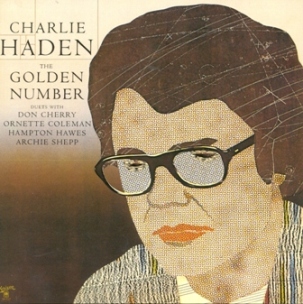
The Golden Number is an album of duets by bassist Charlie Haden recorded in 1976 and released on the Horizon label.






















